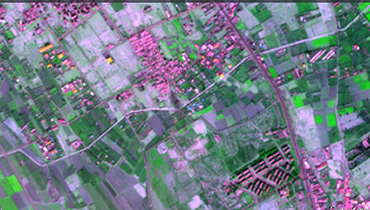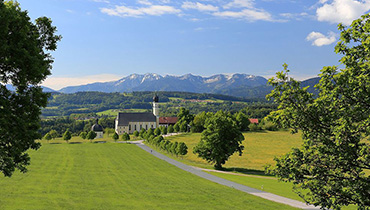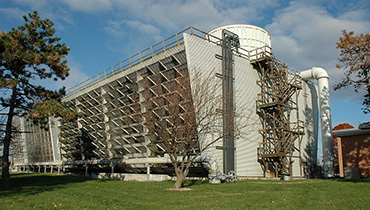STUDIES
Agricultural Engineer (ETSIA), Bachelor of Economics (UCM), Diploma in Project Evaluation of the World Bank, Doctor at Polytechnic University of Madrid.
PREVIOUS POSITIONS
Civil servant in main opposition in the Special Body of Agricultural Engineers of the State. He worked in the Ministry of Agriculture as a member of the Price Board (from 1969 to 1977), member of the Revenue Commission of the Presidency and secretary of the Irrigation Committee in the Development Plan Station.
In 1977, he was economic advisor to the Minister of Agriculture and left administrative positions to organize the Spanish Federation of Food and Beverage Industries (FIAB). FIAB is an organization which pools the various companies of the sector. He was General Directorate of the same until June 2010, and Counsellor of the Presidency until June 2016. Today he is the president of the Technology Platform "Food for Life".
In 2010 he became the Patron of the agri-food section at LAFER Foundation, a non-profit organization, oriented to education in the sector. In the same year he started directing the the Master’s in Management of Agri-food Companies of the foundation at Antonio de Nebrija University.
REPRESENTATIVE
He was appointed several times to councils, boards and committees of public and private entities on behalf of the food industry: Board of Directors of the National Institute of Health, since its beginning in 1977 until its end in 2000; the Observatory of Commercial Distribution (1996 to 2004); the Advisory Council for Foreign Investment and Promotion (1996 to 2004); ICEX Board of Directors (1993 to 2010); Board of Directors of the Spanish Agency for Food Safety and Nutrition (2005 to 2010); founder and vice president of the International Food Fair since its beginning in 1978 until 2012; member of the Economic and Social Council of the Kingdom of Spain (2011 to 2014).
ECONOMIC ACTIVITIES
Due to his position in the Government Committee between 1997-2003 he signed the company constitution of Ecoembalajes de España S.A. (ECOEMBES). He created and was president of the company CERTIFOOD S.L. He was also the founder of the Foundation “Alimentia” y “Alimentun”.
Between 1992 and 1996, he was authorized as an external investment consultant at the Bank of Bilbao Vizcaya.
Since 1992 he sits in Advisory Council of Rabobank Spain.
ACTIVITIES ON FOOD SECURITY
He jointly drafted the law founding the Spanish Food Safety Agency. In 1982 he initiated an alert network to prevent food poisoning, giving way to the Coordinated Information Exchange System (SCIRI), which in turn was the antecedent of the EU RASFF system.
He also implemented the HACCP system (Hazard) in Spanish Agri-food companies in 1989. In 2006, together with AESA, he designed the NAOS Strategy and Self-Regulation Code for advertising food to children under the age of 12 (PAOS Code), which received international attention as best practice initiative (WHO in 2008 and FAO-IFPRI in 2009).
In 2001 he was a Food Security consultant to the Government of Chile.
RESEARCH AND INNOVATION
He began his activities in research and innovation in 1984, when he was called to join the working group to prepare the draft of the Law of Science, which was approved in 1986 (Law 13/1986, of Promotion and General Coordination of Scientific and Technical Research);
Between 1985 and 1987 the CSIC launched a Mobility Programme in Food Science and Technology of which he became a member of the Management Committee. In addition to determining priorities, the committee also selected research projects for public funding.
In 1986, he formed part of an expert group reforming scientific university degrees and proposed a new degree in Food Science and Technology. The proposal was admitted by the group and published in a subsequent Royal Decree (1463/1990 of October 26). The food industry Congress was repeated every 10 years (1996 and 2006).
He took part in the preparation of the First National R&D Plan, in which he proposed the creation of the National Sectorial Technology Centres. Its implementation was carried out by the Inter-ministerial Commission of Science and Technology published in the Official State Gazette of March 1st, 1989.
In 1993 the National Centre for Technology and Food Safety (CNTA) and the National Centre for the Conservation of Fishery Products (CECOPESCA) were inaugurated and, in 1994, the National Technical Centre for Food and Conservation (CTC). The centres have developed considerably, consisting now of more than 600 SMEs.
In 1999, in the Group of Experts for the IV National R & D & I Plan, 200-2003, he proposed the creation of a Network of Excellency Centres. On December 3, 2001 he signed the Agreement for the Creation of the CECOC-PTC (Transformed Meat Products), this agreement was published in the Official State Gazette of March 8, 2002.
His third initiative was the creation of a Technology Platform for the agri-food chain, in 2005. After supporting the creation of a European Platform for the sector, he proceeded to create the Spanish: The Food for Life-Spain Technology Platform (PTF4LS). Its mission is to generate research projects, to facilitate the contacts of all those involved in R & D & I, and along the food supply chain. After operating 11 years, the results speak for themselves: It consists of 750 entities, 69 of which are technology centres, 36 universities and 450 companies. It initiated 500 research projects, which were presented to European and national project calls.
In 2000 he overlooked and managed the transfer of the National Institute of Agricultural and Food Research (INIA) to the Ministry of Science and Technology. He jointly elaborated strategic plans of said institute and was a member of the Advisory Council until its resolution in 2004.
In addition, Dr. Jordana participated in all meetings of the Committee of Experts for the National R&D Plans, and of the Committee of Experts for the selection of research projects under the CICYT and from INIA until 2005.
He still is part of the Governing Councils of the National Technical Centres for Food Technology and Safety (CNTA) and Canned Fisheries (CECOPESCA). He is patron of the Madrid Institute for Advanced Food Studies (IMDEA-Food).
In 2015, he was the chairman of the jury for the BTA Innova and BTA Emprende technological innovation awards, as well as a member of the jury of the National Innovation Awards of the Ministry of Economy and Competitiveness.
He is part of the GESPLAN research group specialized in Rural Development at UPM, in which he collaborated in several projects with the Salesian Polytechnic University of Ecuador and with FAO. He also was the expert for the evaluation of entrepreneurship projects in JESTeR Programme by the Tatiana Foundation.
TEACHING ACTIVITY
In 2010 he started to direct the agri-food area of the LAFER Foundation. The foundation created together with the Antonio de Nebrija University, the Master in Agri-food Business Management (MGEA), of which he is also the director.
He was a member of the Board of Trustees of the General Foundation of UPM (FGUPM) as an elected member during the terms of 2008-2011 and 2012-2015. He is the member of the Delegate Committee. He was appointed honorary professor at UPM in 2010 for lecturing in the International Master “Agris Mundus”. Between 2008 and 2013 he managed a summer courses of the UPM in La Granja. He also taught at the Instituto de Empresa.
Since 1977 he held more than 1000 conferences of all types. He taught in several postgraduate courses and summer courses of almost all Spanish universities. He also lectured at Latin American universities (Mexico, San José de Costa Rica, University of La Sabana in Colombia, Catholic University of Chile, Buenos Aires, Cartagena de Indias, La Habana, University of Piura in Lima, University San Marcos de Lima, Salesian Polytechnic (in Quito, Cuenca and Guayaquil) and European Universities (Agrarian University of Bologna, Portici, Bergamo, Venice, ...).
PUBLICATIONS
As a member of the Advisor Committee and as a evaluator of various publications, he regularly publishes studies and analysis of agricultural and food policies in specialized journals (For example, the jointly written three monographic issues -1983, 1994 and 2003- of the journal “Papeles de Economía”). His latest articles are: “Innovation in industrial sectors in Spain” (Madrid 2015), “Innovation networks and local development in rural areas” (Madrid 2015), “Towards an academic community to investigate” (Quito 2014), “Foods of the Future” (Boecillo 2012), “Innovation, Technology and Food Production” (Buenos Aires 2012), “The Social Involvement of the Spanish Food Industry” (Madrid, 2011), “Opportunities for Job Creation in the Rural World” (Madrid , 2011), “New structures of Agri-food R&D: Working with people” (Madrid 2010), “Agri-food R&D: An opportunity in the face of the crisis” (Madrid 2009). “The sector Spanish agro-sea-food. A renewed vision”, (Almería. 2015) in the Mediterranean Economic Monograph of which he also is the chairman. “Evolution and challenges of the agro-sea-food industry” (León 2016) and “The agri-food sector and the right to fair competition” (Madrid 2016).
DISTINCTIONS
He was awarded the San Isidro Prize (1966) for students of the School of Agricultural Engineers, the Cierzo Prize (2002) for the best undergraduate in Aragon, the silver medal (2004) of the Conservera Union, the oldest business organization in the food sector and the individual medal of the CESFAC (2008). In 2011 he was appointed Honorary Member of the General Council of Agricultural Engineers. In 2015 he received the Innovation Award from the Foundation of Agronomic Engineering for his proposal at the Official College of Agricultural Engineers of Levante and Balearic Islands.
He won the medals of Knight (1972), Official (1975), Delegate (1976), Recognition Award (1981) and the Great Medal (1982) as civilian of agricultural merit, Civilian Delegate of Merit ( 1975), the medals of Isabel the Catholic medal (2003)and Alfonso X the Wise (2016) and the ‘Ordre Nationale du Merite’ of the French Republic (2001).













